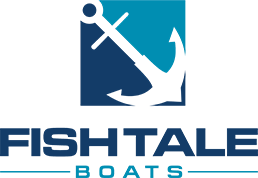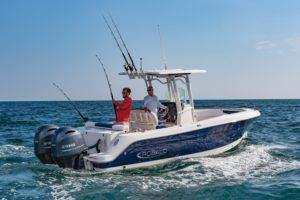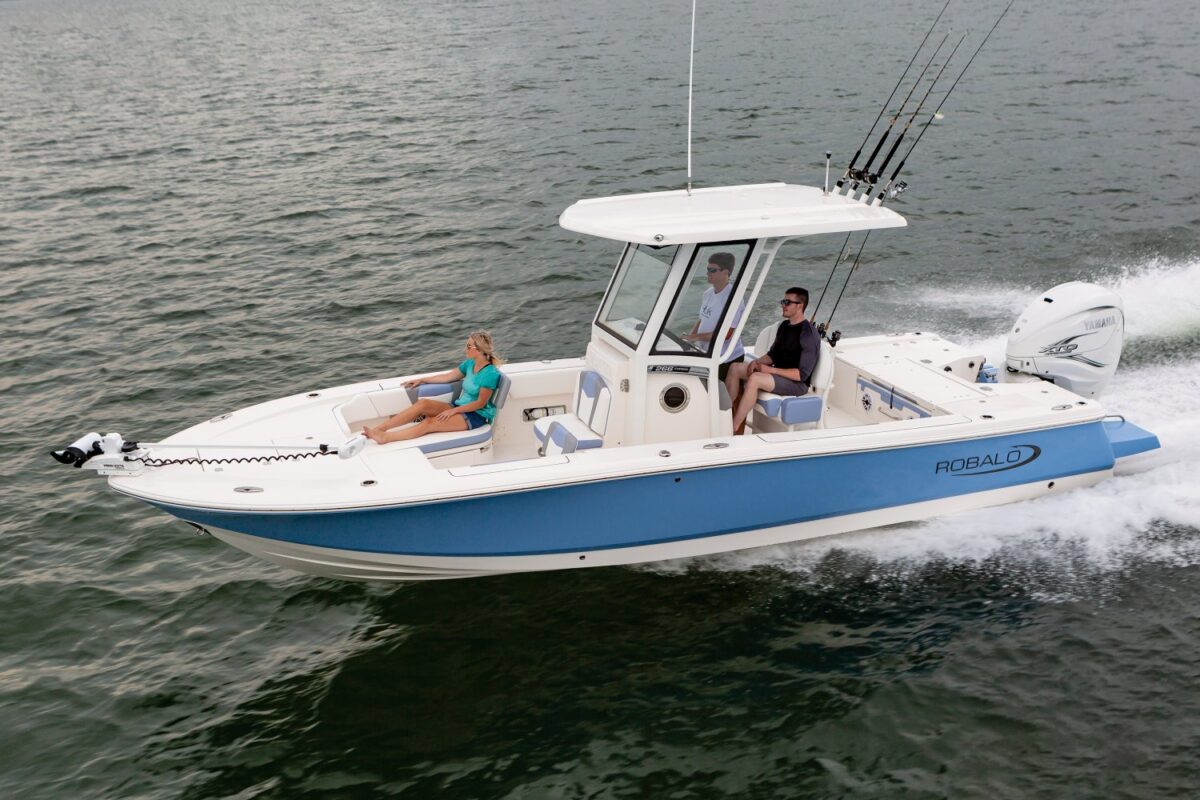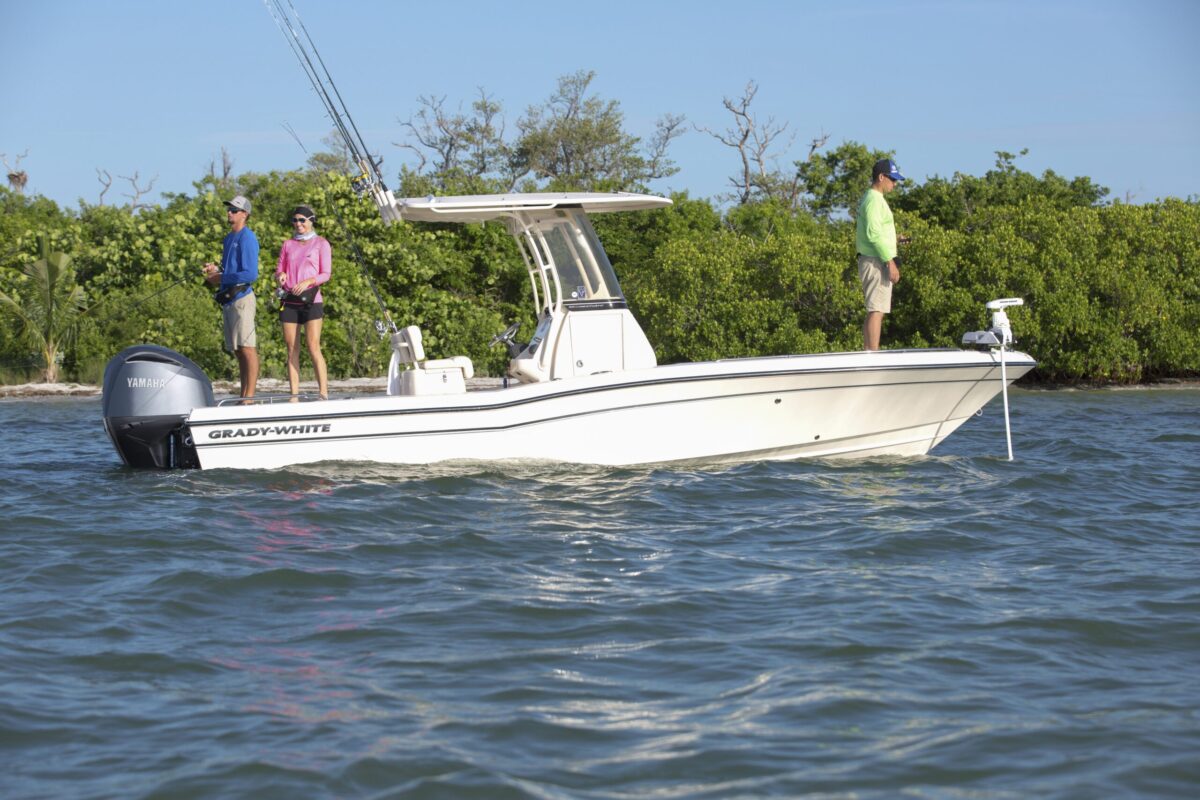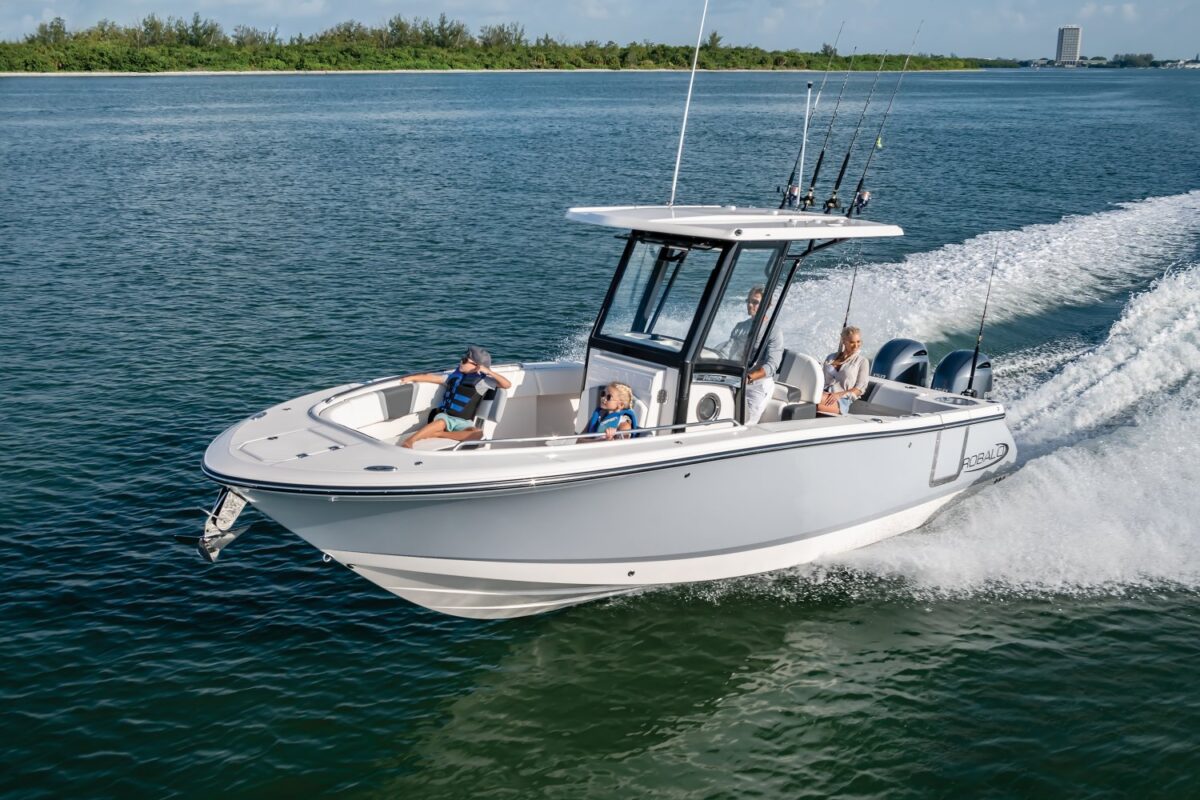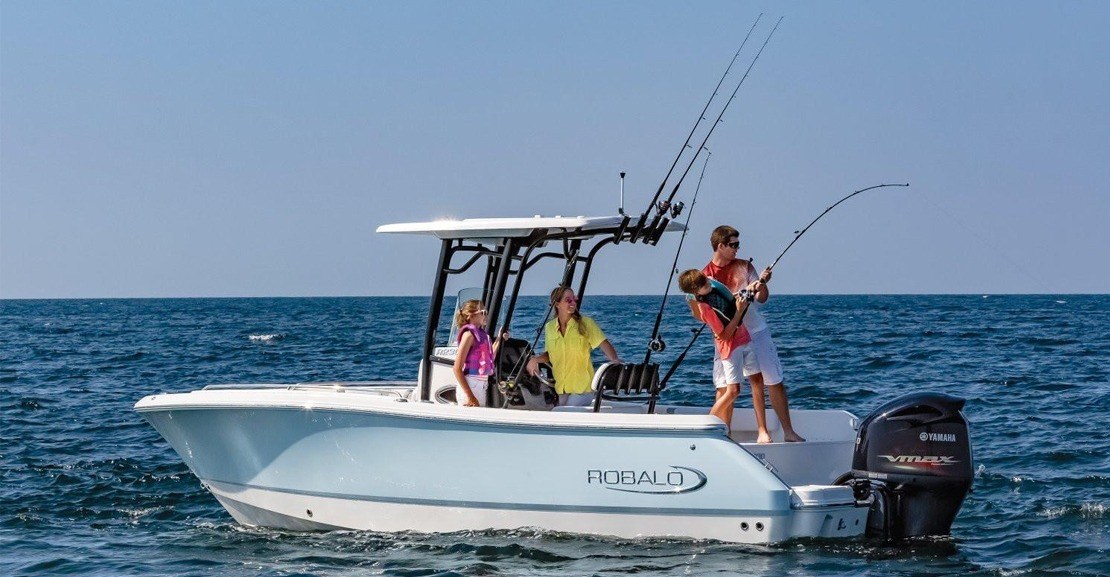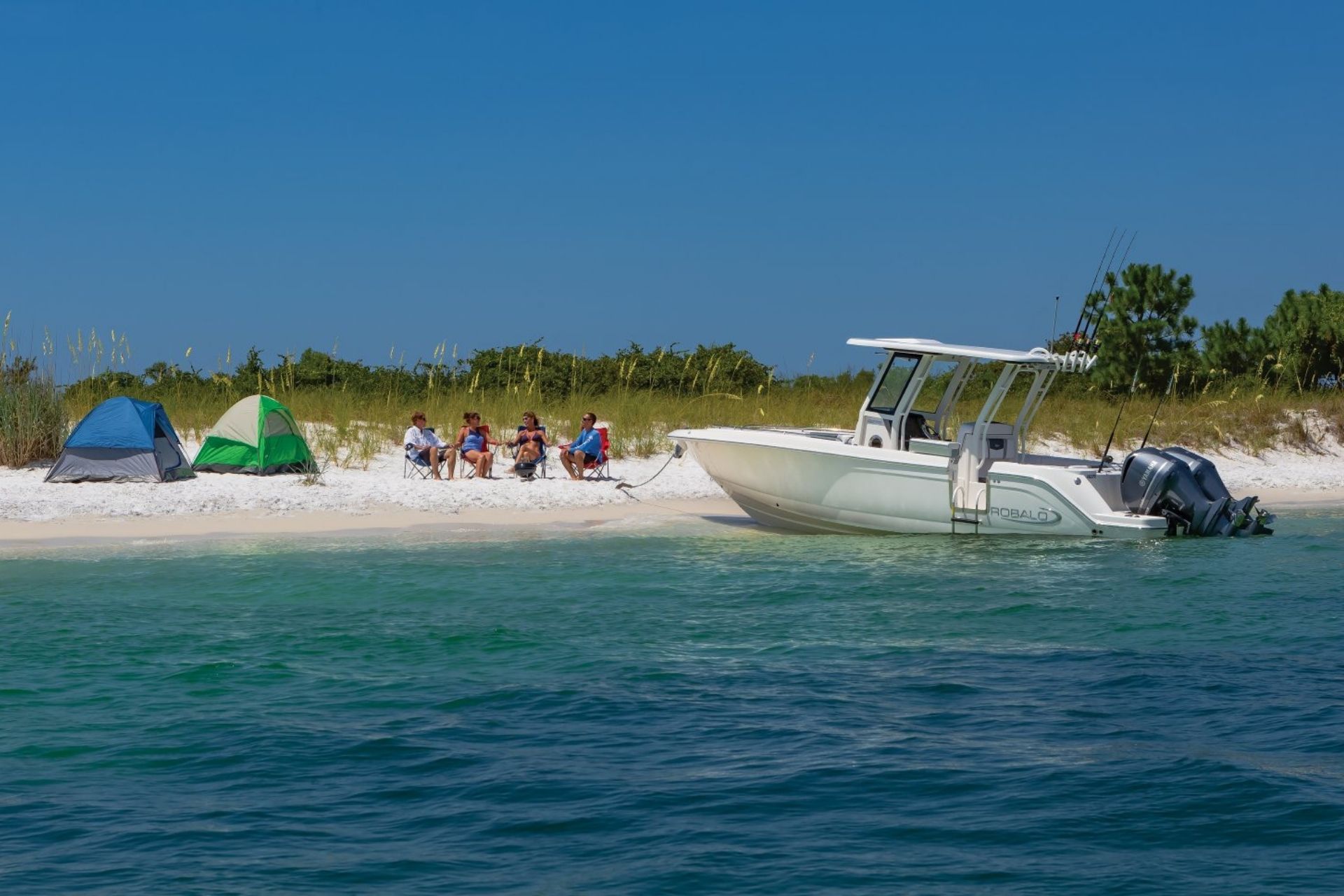If you are new to the boating lifestyle, you are probably not very familiar with Robalo Boats and other boat manufacturers. Even if you are, there are often questions you might want to ask your local dealer.
Check out our answers about why you should choose Robalo Boats, when is a Robalo center console boat right for you, and why the R200 is a great option.
To get more of your questions answered, contact Fish Tale Boats. We are one of SWFL’s Robalo boat dealers.
Why Robalo?
Robalo is one of the top boat manufacturers in America and a leader in the marine industry since 1968. Some of the standout features on a Robalo include a Hydrolift hull for a fuel-efficient, fast plane time with a softer ride, and a forward keel design to facilitate rapid acceleration and boat response.
Robalo’s cutting-edge technology and timeless styles put them above the rest. They are also handcrafted for perfection, including their hard tops, dash consoles, door, and every piece of their interiors.
As SWFL’s Robalo boat dealer, we have consistently seen our clients satisfied with their features, high-quality interiors, and outstanding performance. Feel free to stop by Fish Tale Boats to take a closer look at our Robalo boats.
Is a center console boat the right choice for me?
We often get this question from those interested in buying one of the Robalo center console models like the R200, R242, and the R360.
Center console boats are perfect for the avid sportsman who loves not only fishing but an array of water activities. These boats have the comfort of a family boat combined with great offshore fishing capabilities and modern outboards to enjoy it all. They offer better visibility and mobility than other types of boats.
Should I choose the R200?
The R200 is one of our favorites. It’s space-efficient (includes an enclosed head), performance-oriented (powered by an F150 Yamaha), built for fishing (with extensive rod storage), and packaged with an aluminum trailer that includes brakes.
Plus, you can make the R200 fit your unique needs by customizing this boat with a T-top, hydraulic steering, trim tabs, a porta-potty, powder-coated leaning post, and Command Link gauges!
Looking for Robalo Boat Dealers?
Fish Tale Boats was named the top Robalo boat dealer in the world in 2019 and 2020. Our staff is knowledgeable on the different Robalo models and features to best help you find the boat you are looking for. We also have been selling and servicing boats for more than 20 years, so if you are looking for Robalo boat dealers, contact us!
You can also browse our Robalo inventory online and request an in-person or virtual walkthrough of the models we have available.
